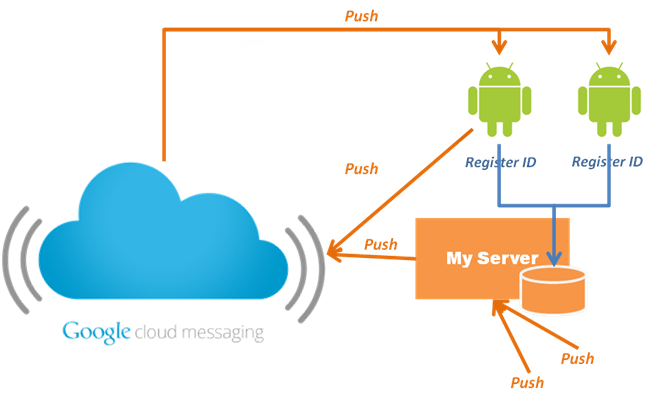
It appears that one of the key components of Google’s Android ecosystem has been found to breach a patent in … you guessed it … the Eastern District of Texas. Renowned for its somewhat crazy patent litigation, a jury in the district has found that Google has infringed on a patent covering the push messaging system used by Android.
Patent 7,035,914, held by a company called SimpleAir, which describes “a system and method for data communication connecting on-line networks with on-line and off-line computers” has been found to cover the workings of Google’s Cloud Messaging service, which is used in many parts of Android to get data from the cloud to Android devices without a device having to poll for said data.
You might not have heard of SimpleAir, for the simple reason that SimpleAir doesn’t actually make anything. It just holds this patent (and others). You could describe SimpleAir as a “inventor-owned technology licensing company”, but we’d probably just use the term “patent troll”. The company has reportedly signed confidential licensing deals with several large companies including Apple, Blackberry and Microsoft, but seemingly not Google, and this could cost Google a bit of money.
Reports say that Google could be penalised up to $125m for the breaches, and really isn’t an awful lot of money to the search giant, but the good news is that it seems unlikely that Google will be prevented from using the infringing technology, and equally, it wouldn’t be in anyone’s interests for that to happen. SimpleAir would undoubtedly prefer to see Google licence an continue to use it, and Google would probably want to license it to avoid further IP issues.
In terms of on-the-ground impact, this probably won’t have much (certainly not as much as the Samsung v Apple lawsuits that keep popping up), but it serves as a timely reminder that the technology space is a highly litigious one, and IP patents are a dangerous area.





I liked it better when the patent office required you to submit an actual working model for your invention before they would consider it. I see no viable reason this can’t be done with software. They also required that the invention be “non-obvious” …. that seems to have fallen by the wayside also. We don’t need patent reform … we just need to actually enforce the true requirements that something be non-obvious and that there be no prior art. If we actually did those two things … 99% of this stuff would dissapear overnight and the industry could get back… Read more »
Damn, I wish I was smart enough to patent this back in the day. 125 million just from Google, plus whetever else they’re already getting from other companies? Day-um.